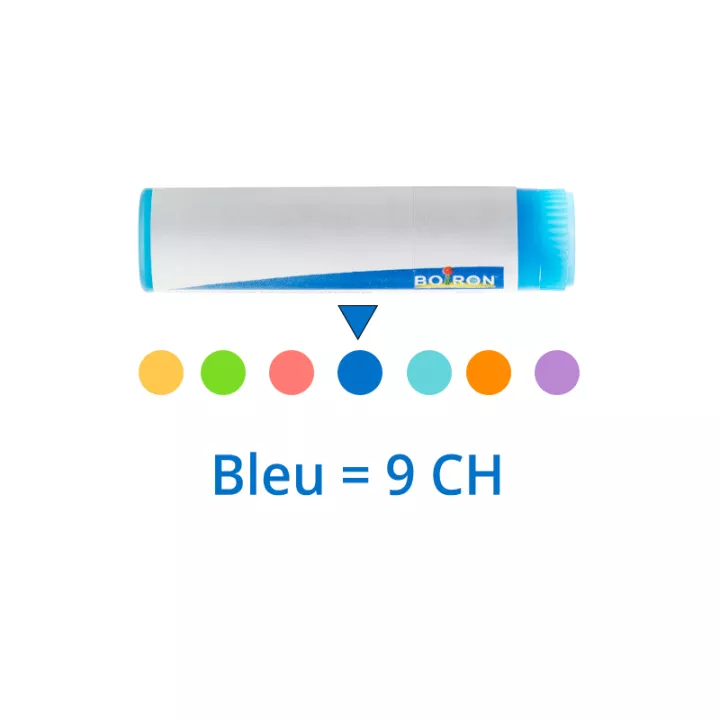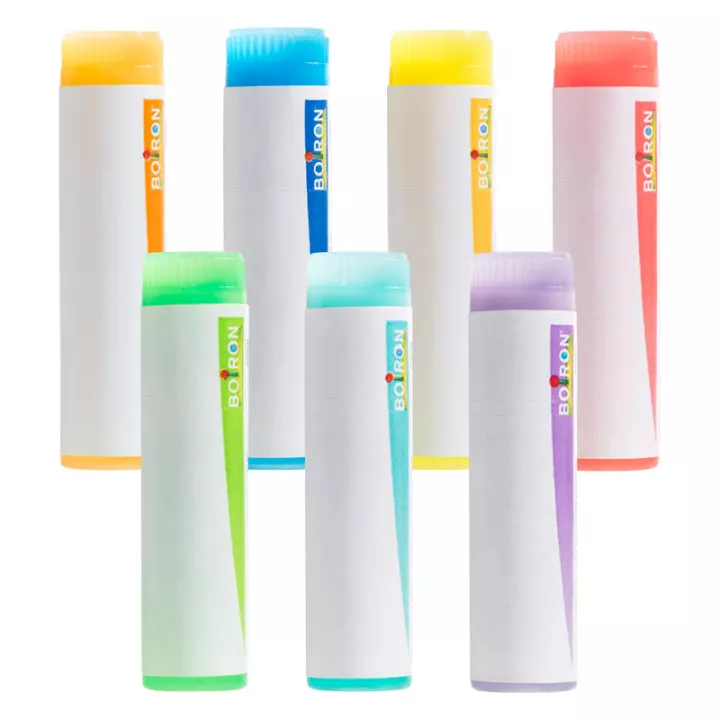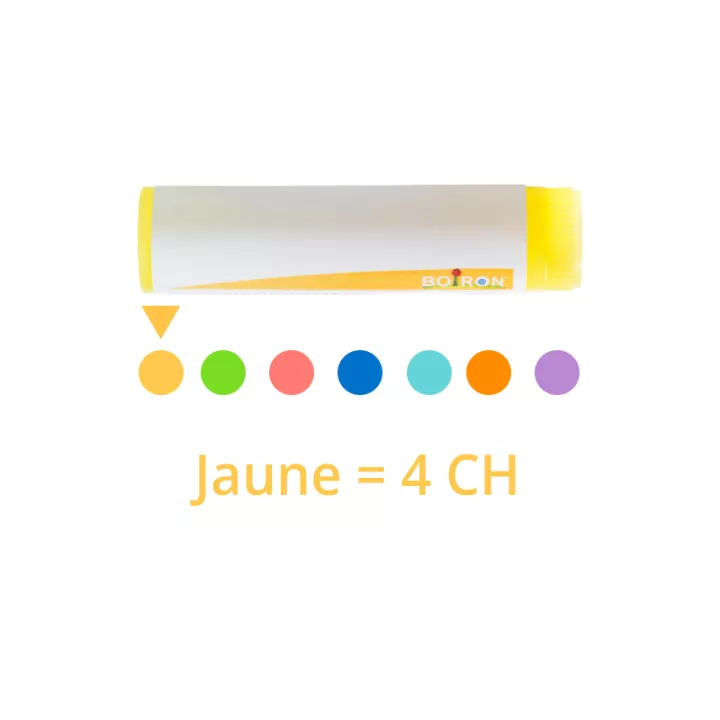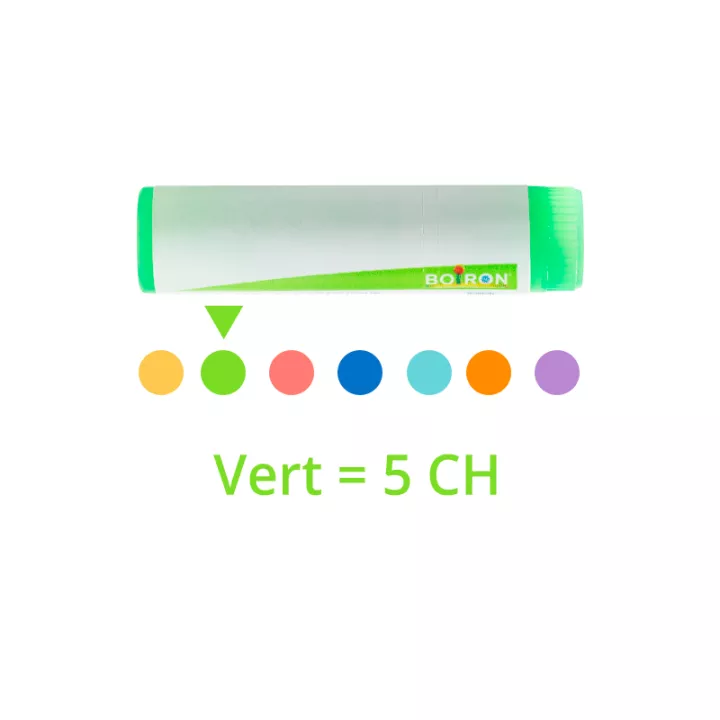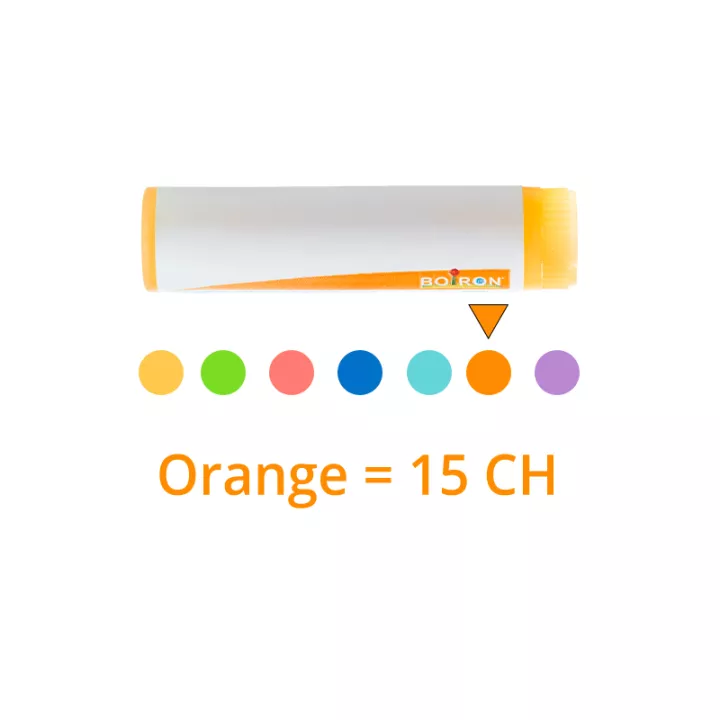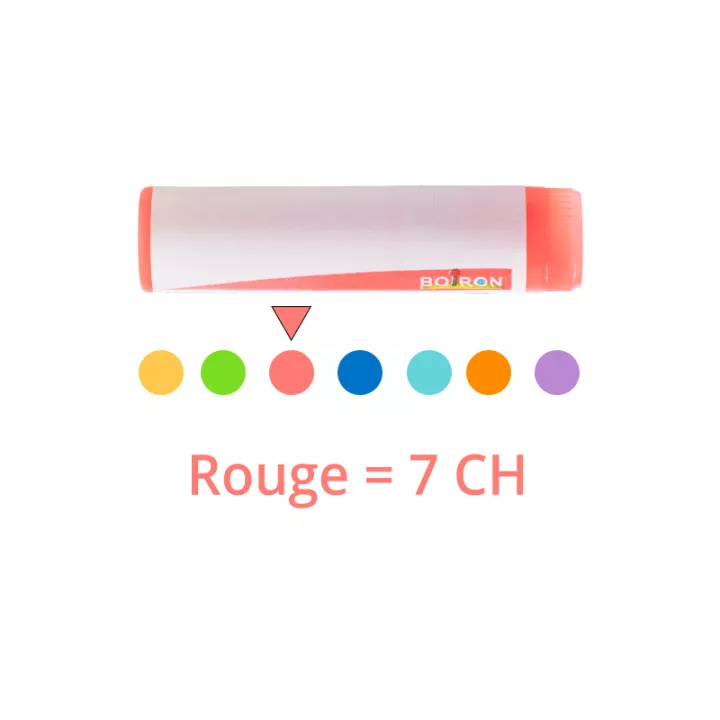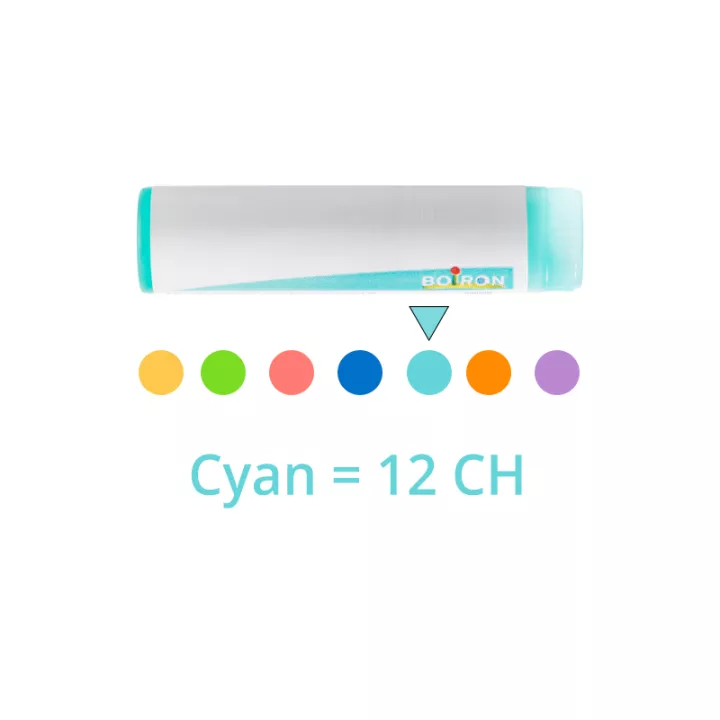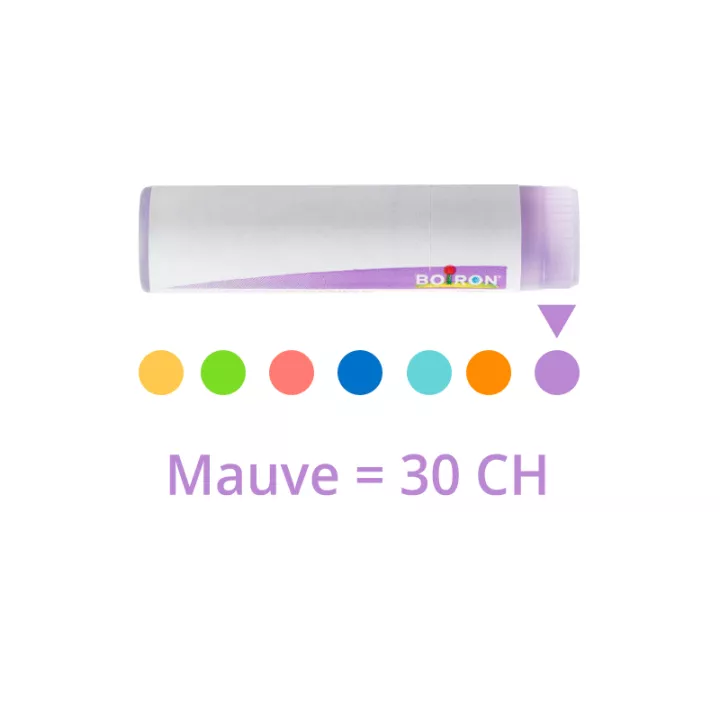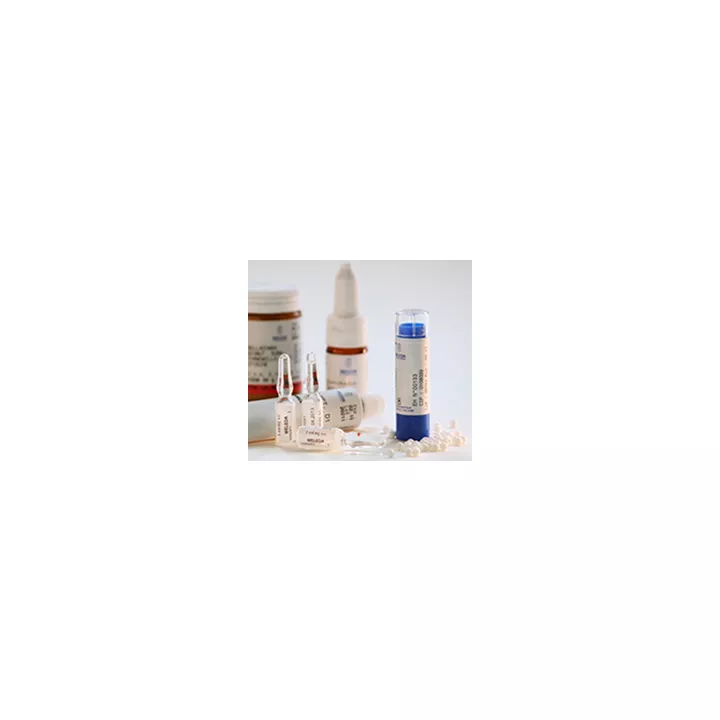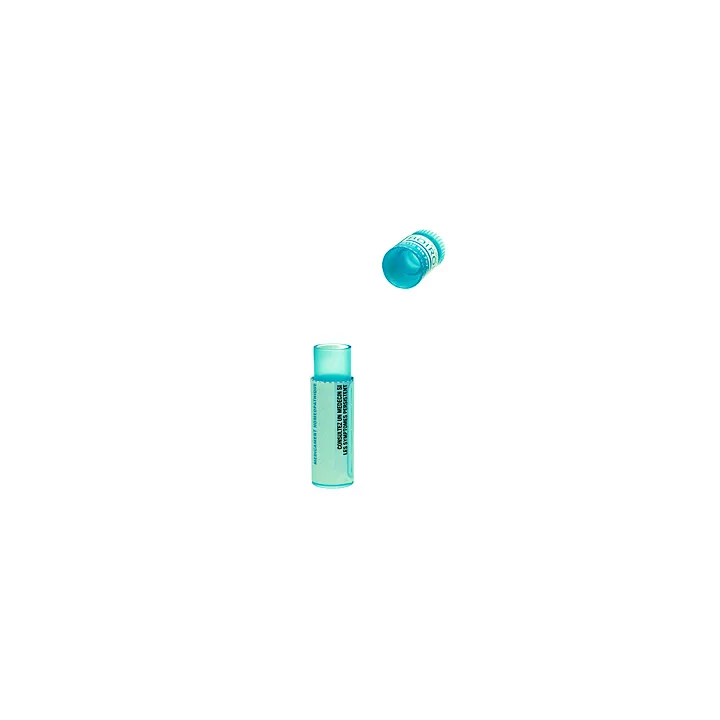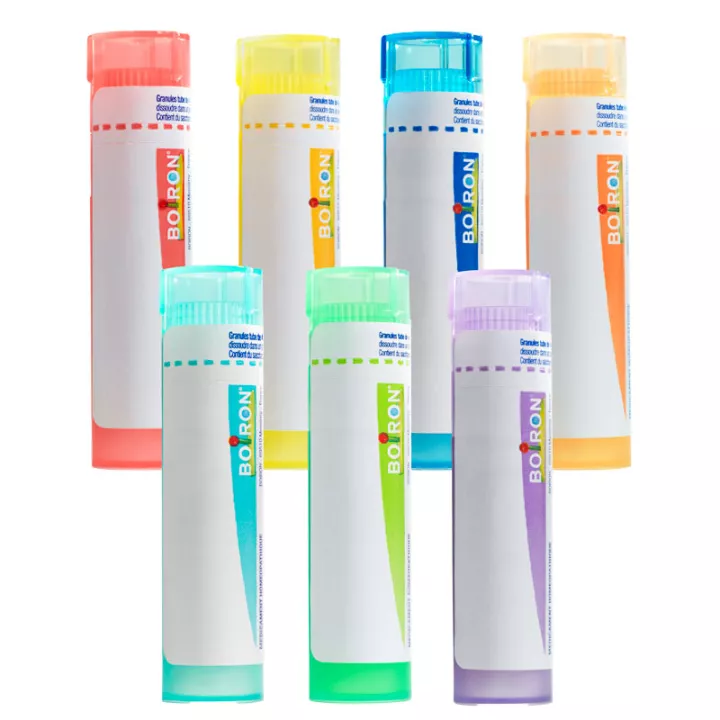Homeopathy Lycopodium clavatum 5CH, 7CH, 9CH, 12CH, 15CH, 30CH monodose Boiron
LYCOPODIUM CLAVATUM
Registered medicine: EH00710
Pharmacopoeia listing
Origin: Vegetal
Give your opinion on the advice for use and dosage with our partner Verified opinions after your purchase.
If no improvement within 24 hours, consult your homeopathic doctor.
What are the indications for Lycopodium Boiron?
Lycopodium Clavatum homeopathic medicines Tubes granules Rocal or doses globules Rocal can be used for a variety of symptoms, so it is not possible to determine the indications and dose of a specific preparation. Use a mint-free toothpaste (such as DENTIFRICE NATUREL Rocal).
Lycopodium Clavatum: a homeopathic remedy with multiple therapeutic virtues
Lycopodium Clavatum is an effective homeopathic remedy for a variety of pathologies. However, the dose to be administered varies according to the symptoms observed.
Lycopodium Clavatum: origin and formulations
Derived from the officinal lycopod (wolf's foot or club grass), Lycopodium Clavatum is a homeopathic remedy used in phytotherapy and homeopathy to treat health problems in gastroenterology, urology, dermatology, ENT, behavioral disorders and metabolism. It comes in a variety of forms, including granules, doses and other formulations.
Indications for digestive disorders
Lycopodium Clavatum is recommended for dyspeptic digestive disorders, such as pyrosis, flatulence and biliary dyskinesia. It is also suitable for patients suffering from biliary lithiasis, headaches, migraines of digestive origin, duodenal ulcers, anorexia in children and acetonemic vomiting. It can also be used to treat lipid disorders (increased triglycerides and cholesterol) and feelings of hunger that are quickly satisfied.
Indications for behavioural disorders
When irritability and depression alternate in children and adults, Lycopodium Clavatum is a necessary treatment. It helps people who are irritable, intolerant of contradictions, bad-tempered and bossy, as well as those who are depressed, fearful, anxious, emotional, lacking in self-confidence and with a faulty memory. It also acts on intellectual alertness and notable physical weakness.
Indications for urological disorders
Lycopodium Clavatum is an effective medication for urogenital disorders, in particular urinary urinary lithiasis. It is also indicated in cases of uremic or urecemic tendency, renal insufficiency, hyperazotemia syndrome, prostatism and impotence accompanied by retained desires.
ENT indications
This homeopathic remedy is particularly effective in treating certain ENT conditions, such as pollinosis and laryngitis. It is also useful for treating both severe and mild ear infections.
Indications for metabolic disorders
Lycopodium Clavatum is indicated for metabolic disorders, such as yellowish skin. It can also be used to treat elevated cholesterol levels, peaks in blood sugar and nitrogen levels, and people with high intellectual capacity but physical weakness.
Dermatological indications
Lycopodium clavatum is widely used in dermatology, mainly for chronic urticaria. In infants, children and adults, eczemas that tend to become infected on the slightest contact require treatment with Lycopodium clavatum. In addition to these symptoms, the patient may present with pre-sternal eczematoid dermatitis and seborrheic dermatitis. On the heels, lesions, fissures and hyperkeratosis may be observed.
If the skin is dry, wrinkled and suffers from foul-smelling, viscous perspiration, treatment with Lycopodium clavatum is indicated.
Lycopodium clavatum is also prescribed in cases of marked baldness in people aged around forty, and when hair loss is particularly noticeable in the middle part of the head. The presence of brownish patches on the abdomen and in the temporal region also requires treatment with Lycopodium clavatum.
How do I take Lycopodium homeopathic granules?
Lycopodium clavatum is a versatile and effective homeopathic remedy for a variety of disorders. In this article, we'll look at the appropriate dosage for different conditions, including gastroenterological disorders, behavioral disorders, urological diseases, ENT conditions, metabolic disorders and dermatological diseases.
Dosage for gastroenterological disorders
For digestive disorders with abdominal bloating, 3 granules of Lycopodium clavatum 9 CH are recommended until symptoms disappear. For infants, a single dose is generally sufficient. For constipation, 10 granules of Lycopodium clavatum 5 CH are recommended. When a child suffers from spasmodic constriction of the anus and pain on defecation, the appropriate treatment is Lycopodium clavatum 5 CH. In other situations, it is preferable to consult a therapist.
Dosage for behavioural disorders in children
For behavioral disorders, 3 granules of Lycopodium clavatum 5 CH should be taken at bedtime. If the child wakes up during the night, give the same dose. For children who sleep with their eyes half-open, the recommended dilution is 9 CH.
Dosage for urological disorders
To effectively treat urological disorders, Lycopodium clavatum 9 CH should be administered to the patient.
Dosage for ENT disorders
In the treatment of otitis, laryngitis and pollinosis, the required dilution is 9 CH. For more severe cases, a 15 CH dilution may be required.
Dosage for metabolic disorders
To treat metabolic disorders with Lycopodium clavatum, the required dilution varies between 7 and 15 CH. For more severe cases, dilutions of up to 30 CH may be recommended.
Dosage for dermatological disorders
To treat dermatological disorders, take 3 granules of Lycopodium clavatum 5 CH three times a day. In cases of severe pathology, this remedy can be combined with China rubra.
In conclusion, Lycopodium clavatum is a versatile homeopathic remedy that can be used to treat a variety of disorders. It is important to follow recommended dosages for best results. If symptoms persist or worsen, it is advisable to consult a therapist.
Lycopodium Clavatum single-dose instructions for use
Remove tab, invert single-dose tube and pull cap slightly. Place all the granules in the dose under the tongue. Do not touch Lycopodium Clavatum single-dose homeopathic granules with your fingers.
Lycopodium Clavatum single-dose granules are absorbed in a single dose, allowing them to dissolve slowly under the tongue. In the absence of a monodose, take 10 granules of the same dilution.
Use a mint-free toothpaste (such as Homéodent Boiron).
Lycopodium Clavatum single-dose packaging and contents
Single-dose tube of translucent globules (visualization of remaining granules). Each tube color corresponds to a dilution
green 5CH red 7CH blue 9 CH water green 12CH orange 15CH mauve 30CH
Weight 1g.
Precautions for use
Warning
Contains sacchararose. Store Lycopodium Clavatum homeopathic medicines in single-dose form away from light, heat, moisture and sources of perfume.
Giving single-dose homeopathic granules to babies and children
For Lycopodium clavatum 5CH, 7CH, 9CH, 12CH, 15CH, 30CH single-dose granules, dissolve in 100ml of water.
Homeopathy and pregnancy
Lycopodium clavatum 5CH, 7CH, 9CH, 12CH, 15CH, 30CH single-dose homeopathic medicines have no chemical toxicity, no contraindications, no interaction with other medicines, and no adverse effects linked to the quantity of product ingested.
Pregnant women can take this medicine without any known risk to themselves or their unborn child, but it's best to ask your pharmacist or homeopathic doctor for advice if in doubt.
Frequency of use of homeopathy
For acute conditions, we recommend taking Lycopodium clavatum 5CH and 7CH single-dose homeopathic remedies every hour until symptoms improve. From then on, take them 3 or 4 times a day, spacing them out, then stop gradually.
For chronic conditions, low-dilution remedies (9CH, 12CH, 15CH, 30CH) should be taken 1-2 times a day, while basic remedies in single-dose granules should be taken once a week, or even once a month. This is a matter for your homeopath to decide.
What to do if there is no improvement within 24 hours
Certain pathologies cannot be treated with homeopathy simply by self-medication. Their severity requires medical advice from a homeopathic doctor. This medical doctor will judge whether your condition can be treated with homeopathy alone, or whether your treatment needs to be supplemented with allopathy.

